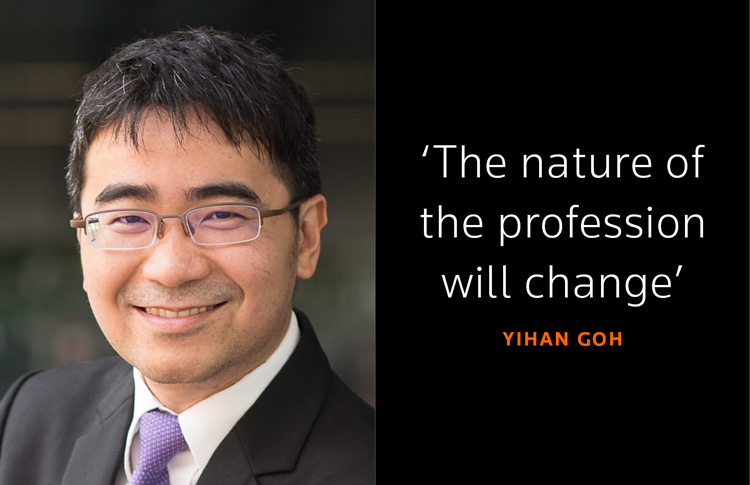
Yihan Goh, dean of the Singapore Management University School of Law, was recently appointed as a senior counsel. He spoke to ALB about how the pandemic is impacting legal education, and what he and his team are doing to build the ‘law school of the future.’
ALB: Can you start by telling us a bit about your career?
Yihan Goh: I am presently professor and dean of the Singapore Management University School of Law. In that capacity, through the collective efforts of a valued team of academic and administrative colleagues, we are building the law school of the future. I graduated from the NUS Faculty of Law in 2006. After graduation, I was fortunate to serve as a justices’ law clerk and then concurrently an assistant registrar at the Supreme Court for two years. After my time at the Supreme Court, I returned to the NUS Faculty of Law as a teaching assistant. I attained an LLM from Harvard Law School on a NUS Scholarship, for which I will always be grateful. I left NUS as an assistant professor in 2014, when I joined the SMU School of Law in a similar role. In 2017, I was appointed to a five-year term as dean of the School of Law, and subsequently promoted to professor in 2019. In 2021, I was appointed senior counsel.
ALB: What are some of the ways legal education has evolved over the time you’ve been in academia?
Goh: I can think of three ways. First, more content has moved online. When I first started teaching, online tools existed but were not as widely utilised as they are now. Second, there is now more awareness of the need to connect what we teach with the realities of practice. This is important because the vast majority of law students will start their careers as practitioners. Third, and this is a recent trend, there is now a greater emphasis on teaching students about technology and how that will affect the legal profession. However, we can certainly do more in this area.
ALB: Technology has been a focus for law firms for quite some time, but given how rapidly this can evolve, how can educators ensure students have a solid understanding that will carry them through their careers?
Goh: At SMU, we pursue a three-pronged approach. First, we want every student to have a general understanding of technology. We do this by distributing “issues packs” to students; these highlight the relevant issues for students to learn about. Second, we ensure that students who want to specialise can do so. We offer a suite of law/tech electives, such as fintech, privacy laws, computational law, etc for students to take. Third, for a select group of students who want a deeper specialisation, we offer a joint degree in law and technology, namely, the BSc in Computing and Law, jointly offered with the School of Informations System.
ALB: Post-pandemic, what new areas do legal studies need to address?
Goh: The pandemic has moved the legal profession on a fast-track towards digitalisation. It is therefore important for legal education to focus on aspects of this change. First, given that more hearings will be conducted online, even after the pandemic, students must learn how to communicate effectively online. This is different from communicating in a real-world setting. Second, technology would continue to change the content of laws, all the more so after the pandemic. Thus, students need to be sensitised to the changing content of the relevant laws. Finally, the nature of the profession will change — lawyers need to be versed not only in the law, but in relevant disciplines so that they can solve problems for clients. Legal education has to react to this.
ALB: Prior to COVID-19 there was discussion around how legal education needs to adapt and evolve. What can educators do to ensure students are truly prepared the changing nature of legal work?
Goh: Educators need to keep themselves updated on the state of technology so that they are equipped to teach the students.
ALB: 2020 was a tough year for new grads, any thoughts or advice for students starting legal studies this year?
Goh: Continue doing your very best, and take a long-term view of things because this too will pass. Spend the time devoting yourself towards learning as much as you can about the law and related disciplines, so that you can be ready when the tide turns — and it will.
To contact the editorial team, please email ALBEditor@thomsonreuters.com.


